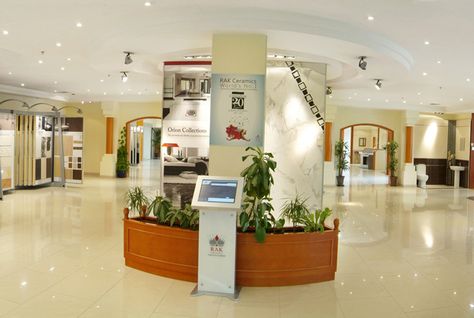
UAE-based RAK Ceramics, one of the world’s biggest makers of floor and wall tiles, said yesterday it would sell its Sudan business and use the cash raised to expand its sanitary ware production capacity in the UAE.
The company has entered an initial agreement to sell all its shares in RAK Ceramics Sudanese Investment Company, and aims to complete the sale by March 31, it said without naming the buyer or revealing the sale price.
It added that it had received an initial, non-refundable cash deposit from the buyers.
At the same time, RAK Ceramics has concluded agreements to raise its annual sanitary ware capacity in the UAE by 500,000 pieces, it said without giving further details.
In November, chief executive Abdallah Massaad said the company was working to exit its non-core businesses.
It reported an 18.3 per cent fall in third-quarter net profit to 57.4 million dirhams ($15.6m) as it continued to book an accounting provision for hyper-inflation in Iran and Sudan and reduced its non-core business earnings.
The company’s current production of sanitary ware at plants around the world exceeds 12,000 pieces per day, according to its website.
FRENCH VERSION
La société a conclu une entente initiale de vendre sa participationdans la société d’investissement soudanais de RAK Ceramics et a pour but de compléter la vente avant le 31 mars, il a dit sansnommer l’acheteur ou de révéler le prix de vente.
Elle a ajouté qu’elle avait reçu un versement initial, non remboursables de l’acheteurs.
Dans le même temps, RAK Ceramics a conclu des accords pouraugmenter sa capacité annuelle d’appareils sanitaires dans lesÉmirats Arabes Unis par 500 000 pièces, il a déclaré sans donnerde plus amples détails.
En novembre, le directeur général Abdallah Massaad a déclaréque la société travaillait pour quitter ses activités non principales.
Il a signalé une baisse de 18,3 % au troisième trimestre unbénéfice net de 57,4 millions de dirhams ($15.6 m) car il a continué à réserver une disposition de la comptabilité de l’hyper-inflation en Iran et au Soudan et a réduit ses gains de l’entreprisenon essentielles.
La production actuelle de la société d’appareils sanitaires dans lesusines du monde entier dépasse 12 000 pièces par jour, selon sonsite Internet.


